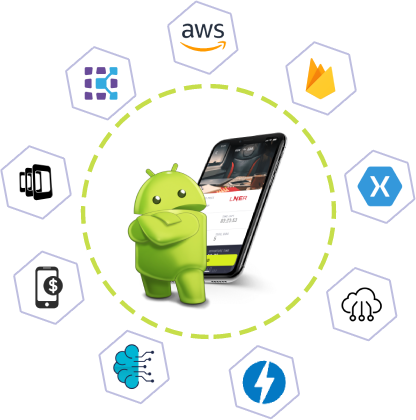The Evolution of Android App Programming Services
In the era of smartphones, Android stands as a colossal figure, dominating the global market with its vast user base and versatile functionality. As businesses and individuals increasingly seek to tap into this dynamic ecosystem, the demand for Android app programming services has surged, shaping a burgeoning industry that caters to a diverse range of needs. From startups to established enterprises, the development of Android applications has become a cornerstone for digital engagement and business growth.
Understanding Android App Programming Services
Android app programming services encompass a broad spectrum of offerings designed to help clients conceptualize, develop, and deploy applications on the Android platform. These services include:
- Custom App Development: Tailored solutions that address specific client requirements, ranging from simple applications to complex systems integrating various functionalities.
- UI/UX Design: Creating intuitive and engaging user interfaces that enhance user experience and ensure seamless navigation within the app.
- App Testing and Quality Assurance: Rigorous testing protocols to ensure the app functions smoothly across different devices and operating system versions, identifying and fixing bugs and performance issues.
- Maintenance and Support: Ongoing support to keep the app updated with the latest features, security patches, and performance improvements.
- Consultation and Strategy: Expert advice on app development strategies, market trends, and best practices to ensure the app meets business objectives and user expectations.
Key Technologies and Tools
Android app development leverages a variety of technologies and tools to create robust and scalable applications. Some of the core components include:
- Programming Languages: Java and Kotlin are the primary languages used for Android app development. Kotlin, in particular, has gained popularity for its modern features and interoperability with Java.
- Development Environments: Android Studio is the official integrated development environment (IDE) for Android development, providing a comprehensive suite of tools for coding, debugging, and testing applications.
- APIs and Frameworks: Android’s rich set of APIs and frameworks, such as Jetpack, facilitate the development of feature-rich applications by providing pre-built components and libraries.
- Testing Tools: Tools like Espresso, JUnit, and Android Debug Bridge (ADB) are essential for automating and streamlining the testing process, ensuring high-quality app performance.
The Process of Android App Development
The journey of creating an Android application involves several stages, each critical to the successful deployment of the app. These stages include:
- Requirement Analysis: Understanding the client’s needs, target audience, and business goals to define the app’s features and functionality.
- Design: Crafting wireframes and prototypes to visualize the app’s interface and user experience before moving on to full-scale development.
- Development: Writing the code and integrating necessary APIs, databases, and other backend services to bring the app to life.
- Testing: Conducting extensive testing to identify and rectify any issues, ensuring the app performs optimally across different devices and conditions.
- Deployment: Publishing the app on the Google Play Store or other distribution platforms, making it available to users.
- Post-Launch Support: Providing continuous updates and support to address user feedback, introduce new features, and maintain compatibility with the latest Android versions.
Trends in Android App Programming
The landscape of Android app development is continually evolving, driven by advancements in technology and changing user preferences. Some of the current trends shaping the industry include:
- Artificial Intelligence and Machine Learning: Integrating AI and ML to create smarter apps that can predict user behavior, provide personalized experiences, and automate tasks.
- Internet of Things (IoT): Developing applications that interact with IoT devices, enabling users to control and monitor smart home systems, wearables, and other connected devices.
- Augmented Reality (AR) and Virtual Reality (VR): Enhancing user engagement through immersive experiences in gaming, education, retail, and more.
- Blockchain Technology: Leveraging blockchain for secure transactions, data integrity, and creating decentralized applications (DApps).
- 5G Technology: Harnessing the power of 5G networks to deliver faster, more responsive applications with enhanced capabilities for streaming, real-time communication, and data processing.
Conclusion
Android app programming services have become an integral part of the digital ecosystem, empowering businesses to connect with their audience in innovative ways. As technology continues to advance, these services will undoubtedly evolve, offering even more sophisticated solutions to meet the ever-growing demands of users and industries alike. For businesses looking to stay competitive and relevant, investing in quality Android app development is not just an option—it’s a necessity.




